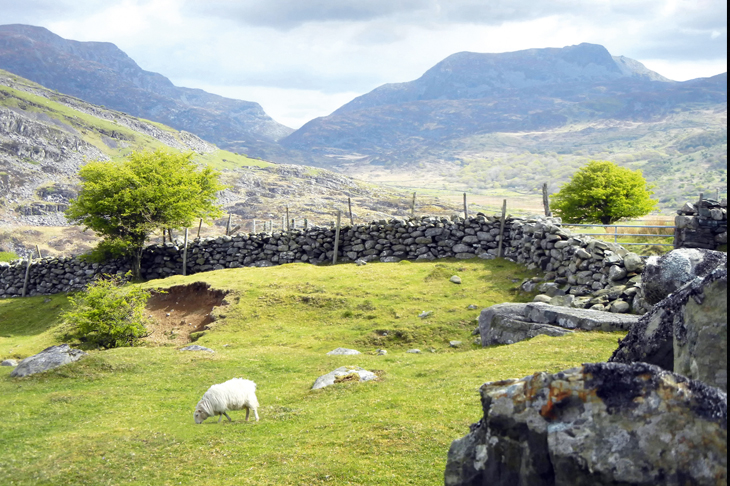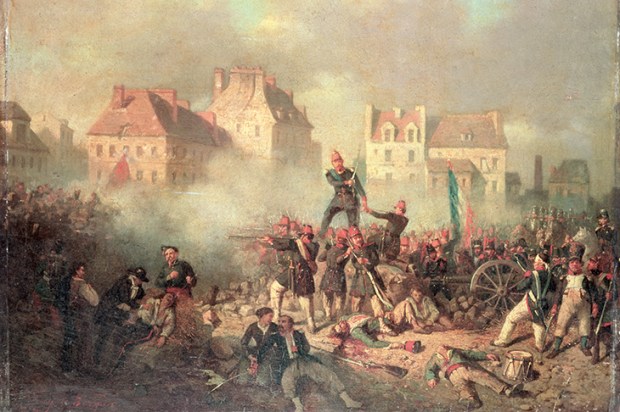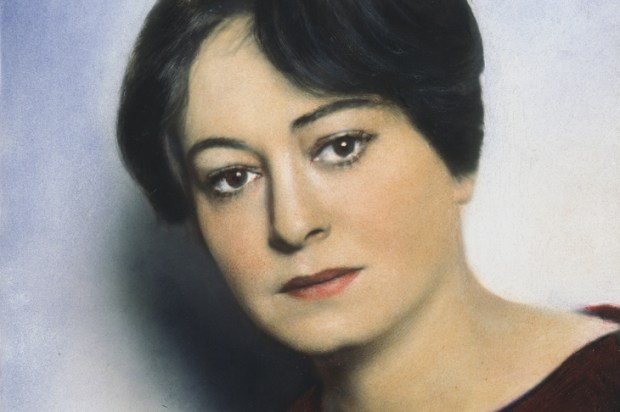We all tell stories about ourselves, every one of us. ‘I’m a useless cook.’ ‘Spiders don’t scare me.’ Not all these stories are true, but then self-perception has never held much truck with truth. Our stories are our own,to hold, repeat and believe in.
But what if your story isn’t your own? What if you start out on life’s journey and discover that your story is, in fact, someone else’s? This deeply unsettling scenario provides the driving narrative to this confessional, heartfelt, if somewhat scatty memoir.
Whitney Brown was, as we’re frequently reminded, an A-star student, a valedictorian. Growing up in small-town South Carolina, she was the kid deemed ‘most likely to succeed’. But at what?
There’s the rub. She was born into a hard-working, lower middle-class family, just a generation between her and cotton-picking poverty, and her destiny seemed sealed. University, post-graduate degree, respectable job — and thus the comfortable, white-collar life her predecessors could only dream about.
Only, in true millennial style, Brown decides to write her own script. So she turns down a job at the Smithsonian (read: status, security, ‘success’) and decides, on a whim, to take herself off to mid-Wales to learn the ancient art of stone walling (read: brave but ‘crazy’).
Her thinking: ‘Wales did not have money to offer me — but what it did have was adventure and intrigue. And, to be honest, money has always bored me.’ Unsurprisingly, what she discovers on arrival reflects back this new narrative she has decided to tell about herself. So the Wales of her experience is a nation of numbing ‘pastoral glory’, where even the rain and mist could be forgiven for the ‘drama they added’.
There is adventure and intrigue aplenty. At the heart of the book is a very touching yet ill-fated love affair with her walling mentor — ‘a scholar, a poet, a warrior’ — who is twice her age and, as it transpires, not keen on marriage. Tales of heartbreak aside, there are endless yomps in the hills and late nights snuggled by the fire, lots of intimate chats over Earl Grey and Shakespeare under the stars. Plus, the stone walling, of course. Out in the open all day, creating an object of beauty, etching your own legacy into the landscape: it makes the Smithsonian sound dull as ditchwater.
For an American crowd, most of whom, by her own admission, couldn’t find Wales on a map, this must all sound desperately romantic. British readers, on the other hand, may struggle to recognise the country she is determined to see, so swathed is it in wilful romanticism and so full of ‘lovely people… beauty, adventure and contradiction. Plus champagne’.
As an infatuated incomer to Wales myself, I can empathise with her beguilement. To her credit, Brown is not entirely without self-awareness either. There is a telling line at the end of the book. Wales, she admits, has become ‘more complicated’ for her. Why? Because it’s now ‘a place where real life had taken root’. The assumption, of course, is that everything that came before was something of a fantasy. You don’t have to read between the lines to see this: in the mode of the teenage diarist, Brown pours everything on to the page.
Take walling, the book’s saving grace. All her projects, from crumbling farm walls above the Elan Valley reservoirs to garden bench-backs in Virginia, are described in intimate detail. Just the vocabulary — words like ‘hearting’, ‘lunky’ and ‘cock-and-hen’ — evoke a dream space where craft and culture mix. ‘Tidy’ though all her projects invariably end up, there is plenty of backache and rain-soaked drudgery along the way. Episodes of work-induced depression also get a graphic airing, a phenomenon that hits her, despite ‘living the life I’d asked for’.
Between Stone and Sky could have been many things: an exegesis on work and class relations, a meditation on belonging and home, an analysis of craftsmanship in a capitalist age. All are teasingly referenced, but with a frustrating lack of reflection. Instead, this is a book about the stories we tell ourselves and one woman’s determination to make hers true. Triumphant and tragic in equal measure, Brown’s story is the American dream for the millennial generation.
Got something to add? Join the discussion and comment below.
Get 10 issues for just $10
Subscribe to The Spectator Australia today for the next 10 magazine issues, plus full online access, for just $10.
You might disagree with half of it, but you’ll enjoy reading all of it. Try your first month for free, then just $2 a week for the remainder of your first year.














Comments
Don't miss out
Join the conversation with other Spectator Australia readers. Subscribe to leave a comment.
SUBSCRIBEAlready a subscriber? Log in